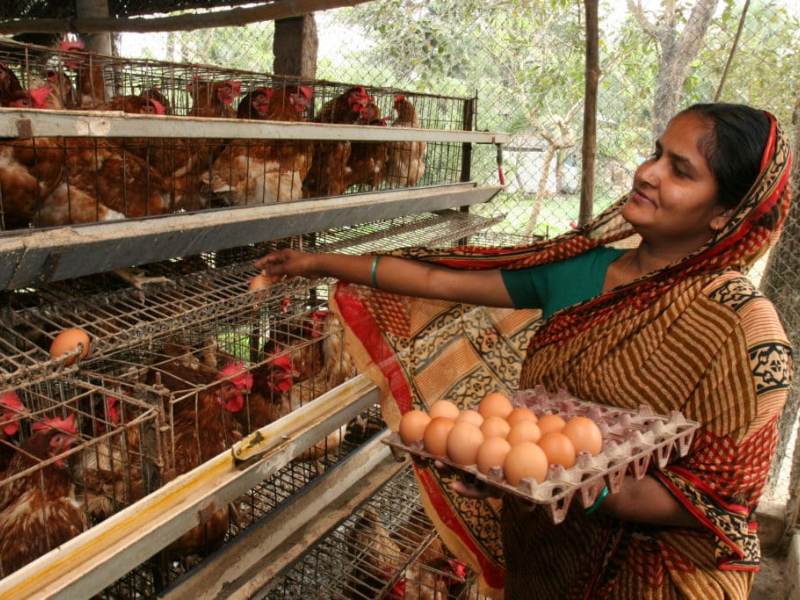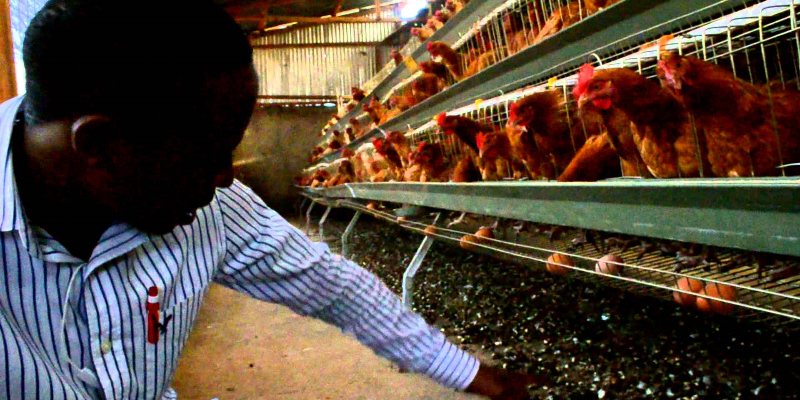
The Most Complete Poultry Farming Guide in Guinea
Poultry farming is becoming an increasingly vital sector in Guinea, providing employment opportunities and a source of protein for local communities. If you’re considering entering this rewarding field, the Guinea Poultry Farming Guide is designed to help you navigate through the essentials of poultry farming, from selecting the right breeds to managing your farm effectively.
1. Understanding Poultry Breeds
In any successful poultry farming operation, understanding the various breeds is crucial. The first section of our Guinea Poultry Farming Guide focuses on breed selection. In Guinea, the most common poultry species include chickens, ducks, and turkeys.
Local chicken breeds like the Guinea fowl are well-adapted to the climate and require less care compared to exotic breeds. However, integrating high-yield breeds such as broilers (for meat) and layers (for eggs) can significantly enhance productivity. Choosing the right breed depends on your farming goals—whether you want to focus on egg production, meat production, or both.
2. Farm Setup and Infrastructure
A proper setup is vital for successful poultry farming. According to the Guinea Poultry Farming Guide, consider the following elements when establishing your poultry farm:
- Housing: Ensure that your poultry house provides adequate ventilation, protection from predators, and sufficient space for the birds to move around. Each bird should be allotted enough space to prevent overcrowding, which can lead to stress and disease.
- Water Supply: A consistent supply of clean water is essential for poultry health. Installing automated drinkers can help maintain hydration without frequent manual checks.
- Feeding Facilities: Proper feeding stations should be constructed to minimize waste and ensure all birds have equal access to food. Consider using troughs and feeders that suit the type of feed you plan to use.
3. Nutrition and Feeding
Nutrition plays a significant role in the growth and productivity of poultry. In our Guinea Poultry Farming Guide, we emphasize the necessity of a balanced diet for your flock. Poultry requires a mix of carbohydrates, proteins, vitamins, and minerals to thrive.
- Starter Feeds: For chicks, starter feeds rich in protein are crucial for growth. These feeds generally contain about 20-24% protein content to support their rapid development.
- Grower and Finisher Feeds: As the birds mature, transition them to grower feeds with lower protein levels (around 16-18%) until they reach market weight.
- Layer Feeds: For hens, layer feeds with approximately 16-18% protein, along with calcium supplements, will encourage optimal egg production.
Remember to adjust the diet based on the age and purpose of your birds, as it directly impacts their health and productivity.
4. Health Management
Health management is another critical component outlined in the Guinea Poultry Farming Guide. Preventing diseases is far more effective than treating them. Here are some strategies to ensure the health of your poultry:
- Vaccination: Regular vaccination schedules should be established to protect your flock from common diseases such as Newcastle disease, avian influenza, and Marek’s disease. Consult a veterinarian for advice on a suitable vaccination program tailored to the local conditions in Guinea.
- Biosecurity Measures: Implementing strict biosecurity protocols is essential to prevent the introduction and spread of diseases. This includes controlling access to the farm, using disinfectants, and maintaining hygiene in feeding and watering systems. It’s also crucial to keep wild birds away from your flock, as they can transmit diseases.
- Monitoring: Regularly observe your birds for any signs of illness or distress. Early detection of health issues can significantly mitigate losses and improve overall productivity.
5. Record Keeping and Management
Effective management of your poultry farm requires diligent record-keeping, as highlighted in the Guinea Poultry Farming Guide. Maintain detailed records of your flock, including:
- Feeding: Track feed consumption rates, weight gain, and the amount of feed used per bird. This data will help you optimize feeding strategies and reduce waste.
- Health Records: Document vaccinations, treatments, and any health issues that arise. This information will be invaluable for assessing the effectiveness of your health management practices.
- Production Records: Keep track of egg production rates, growth rates, and overall profitability. Monitoring these metrics enables you to make informed decisions about breeding, feeding, and marketing your products.
6. Marketing Your Poultry Products
Once your poultry farming operation is up and running, you’ll need to focus on marketing your products effectively. The Guinea Poultry Farming Guide provides useful insights into marketing strategies:
- Local Markets: Identify local markets, grocery stores, and restaurants that are interested in sourcing fresh poultry products. Developing relationships with these buyers can provide a steady stream of income.
- Direct Sales: Consider selling directly to consumers through farmers’ markets or by setting up your own retail outlet. This approach allows you to establish a connection with your customers and often leads to higher profit margins.
- Online Platforms: With the rise of e-commerce, consider utilizing online platforms to reach a broader audience. Social media and dedicated websites can serve as an excellent platform for advertising your poultry products.
7. Sustainable Practices
Sustainability is becoming increasingly important in agriculture, including poultry farming. The Guinea Poultry Farming Guide advocates for environmentally friendly practices that not only benefit the environment but also enhance the long-term viability of your farm.
- Waste Management: Proper disposal of waste products is crucial. Consider composting manure and bedding materials, which can be used as fertilizer for local gardens or sold to crop farmers.
- Integrated Farming: Explore integrating poultry farming with crop production or aquaculture. This practice can maximize resource use and create a more sustainable farming system.
- Water Conservation: Develop systems for rainwater harvesting and recycling water wherever possible to minimize water usage.
Conclusion
In conclusion, starting and managing a successful poultry farm in Guinea requires careful planning, commitment, and knowledge. By following the guidance laid out in this Guinea Poultry Farming Guide, aspiring poultry farmers can set themselves up for success. From selecting the right breeds and implementing proper housing designs to focusing on health management and marketing your products, every aspect of poultry farming plays a crucial role in achieving productivity and profitability.
Whether you’re a beginner or looking to refine your existing operations, understanding the key components outlined in this guide will empower you to make informed decisions that lead to a thriving poultry business. Embrace the opportunities that poultry farming presents, and contribute to the economic development and food security of Guinea.

